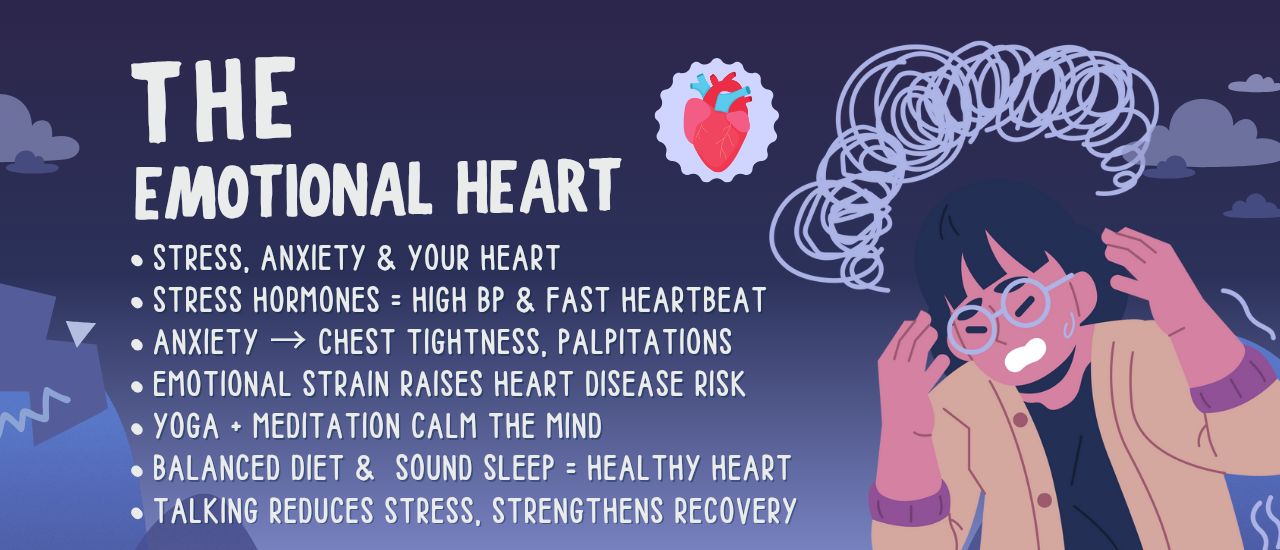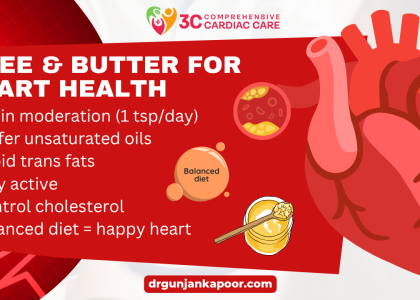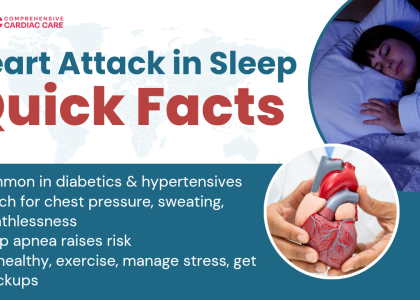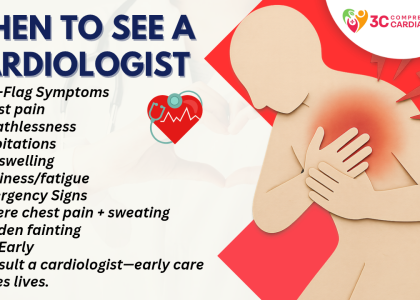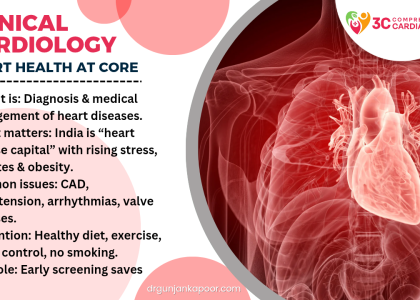Introduction
In India, conversations about heart health usually revolve around diet, cholesterol, and exercise. But one crucial factor often gets ignored—the role of emotions. Stress, anxiety, and emotional strain silently affect the heart just as much as unhealthy food or lack of exercise. With the growing demands of urban life, the emotional well-being of Indians is under constant pressure, directly impacting heart health.
Science now shows that the mind and heart are deeply connected. Our emotional state influences blood pressure, heart rhythm, and even long-term risk of heart disease. Understanding this connection is the first step towards protecting not just the heart, but overall well-being.
How Stress Affects the Heart
Stress activates the body’s “fight or flight” response. When the brain senses stress, it releases hormones like adrenaline and cortisol. These cause:
-
Increased heart rate
-
Narrowing of blood vessels
-
Rise in blood pressure
Occasional stress is manageable, but chronic stress keeps the heart in a constant state of alert, which can damage arteries, raise cholesterol levels, and increase the risk of hypertension and heart attack.
In India, job insecurity, traffic congestion, long working hours, and financial responsibilities are common stressors—making urban populations more vulnerable to stress-related heart conditions.
Anxiety and Its Link to Heart Health
Anxiety goes beyond everyday stress. Persistent anxiety can lead to irregular heartbeat (arrhythmia), chest tightness, and even mimic heart attack symptoms. People with anxiety disorders are also more likely to develop high blood pressure and coronary artery disease.
For Indians, especially young professionals in fast-paced cities, anxiety has become increasingly common. Rising social comparisons, pressure to perform, and uncertainty about the future are all triggers that silently affect heart health.
Emotional Well-Being and Heart Disease in India
According to the Indian Heart Association, Indians are prone to heart diseases almost 10 years earlier than Western populations. While poor lifestyle habits are often blamed, emotional health is an equally significant but less discussed factor. Studies show that depression, loneliness, and constant stress increase the risk of heart attacks and slow down recovery after cardiac procedures.
Warning Signs to Watch For
Stress and anxiety may show up in subtle ways before harming the heart. Common symptoms include:
-
Frequent headaches
-
Chest tightness or palpitations
-
Poor sleep or insomnia
-
Digestive issues like acidity and bloating
-
Constant irritability or restlessness
Ignoring these signs can lead to long-term damage. Recognizing them early and seeking support is vital for protecting heart health.
Managing Stress and Protecting the Heart
The good news is that emotional health can be managed with simple lifestyle changes. Here are some India-friendly approaches:
1. Yoga & Meditation
India has gifted the world yoga and meditation—both proven to reduce stress hormones, improve blood circulation, and calm the nervous system. Even 20 minutes of pranayama or guided meditation daily can significantly lower heart risks.
2. Balanced Diet
Foods rich in fiber, antioxidants, and omega-3 fatty acids help regulate blood pressure and keep the heart healthy. Avoid excessive fried foods, sugary drinks, and late-night binge eating—common habits among stressed professionals.
3. Physical Activity
Walking, cycling, or playing a sport reduces stress, improves mood, and keeps the heart strong. WHO recommends at least 150 minutes of moderate physical activity weekly, which is very achievable with small daily efforts.
4. Good Sleep Hygiene
Stress and anxiety often disturb sleep, which further affects the heart. Maintaining a regular sleep cycle, avoiding late-night screen time, and relaxing before bed can improve sleep quality.
5. Social Support & Talking It Out ️
Strong family bonds and friendships—an integral part of Indian culture—are powerful stress-busters. Talking to loved ones or seeking professional counseling helps reduce emotional burden and improves heart health.
Conclusion
The heart does more than pump blood—it feels, reacts, and responds to our emotional world. Stress and anxiety silently strain the heart, increasing the risk of serious diseases. For Indians, where fast-paced lifestyles and high emotional demands are common, protecting emotional well-being is just as important as regular exercise or a healthy diet.
By embracing yoga, meditation, social support, and healthy habits, we can build resilience against stress and keep our hearts strong—for life.

